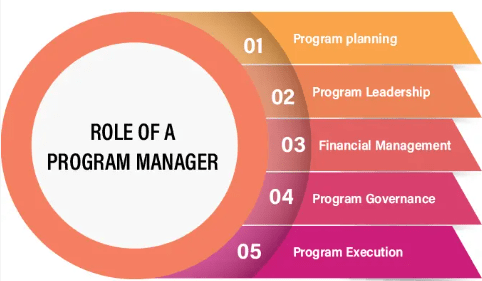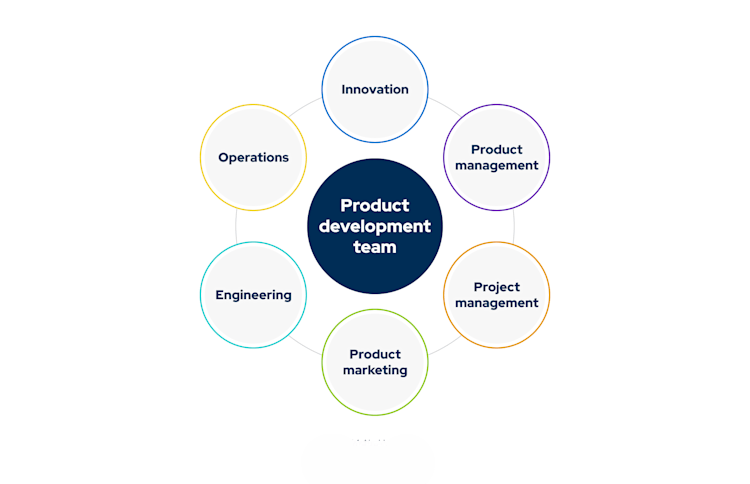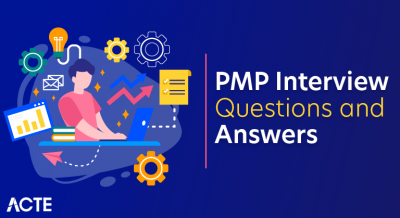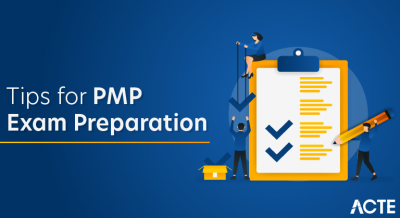
- Introduction to the Product Manager Role
- Overview of Job Responsibilities
- Required Skills and Competencies
- Experience and Educational Requirements
- Key Responsibilities in Product Lifecycle
- Collaboration with Engineering and Marketing Teams
- Defining and Prioritizing Features
- Customer Research and Feedback Handling
- Managing Roadmaps and Timelines
- Reporting and Documentation
- Preferred Certifications and Qualifications
- Career Growth Opportunities
- Conclusion
Introduction to the Product Manager Role
The role of a Product Manager (PM) is central to the successful development, launch, and continuous improvement of a product. Product managers act as the bridge between business goals objectives, Product Manager Role , and technical execution. They define the product vision, collaborate with cross-functional teams, and prioritize features to deliver value-driven solutions. PMP Training are responsible for the entire product lifecycle, marketing teams from ideation to retirement. Their strategic thinking, analytical skills, and customer-centric approach make them essential for driving growth and ensuring product-market fit. As businesses increasingly adopt agile methodologies, the role of product managers has become even more significant in ensuring efficient delivery and alignment with business goals.
Overview of Job Responsibilities
Product managers wear many hats and oversee multiple facets of the product development process. Their core responsibilities include:
- Product Vision and Strategy: Defining the long-term vision and roadmap to align with business goals.
- Market Research and Analysis: Conducting market research to identify customer needs, market trends, and competitor strategies.
- Feature Prioritization: Defining and prioritizing product Common Project Risks and How to Tackle them based on business value, customer impact, and technical feasibility.
- Collaboration with Teams: Working closely with engineering, marketing, design, and sales teams to ensure smooth execution.
- Customer Advocacy: Gathering and analyzing customer feedback to enhance the product continuously.
- Roadmap Management: Maintaining and communicating the product roadmap to stakeholders.
- Performance Analysis: Monitoring product performance using key metrics and making data-driven improvement decisions.
Master PMP skills by enrolling in this PMP Certification Training today.
Required Skills and Competencies
A successful product manager needs a diverse skill set, combining technical expertise, business acumen, and leadership abilities. The key skills include:
- Strategic Thinking: The ability to develop and align a clear product vision with company goals.
- Market Research Skills: Competence in analyzing market SCM Tools and Frameworks, customer needs, and competitor products.
- Technical Proficiency: Understanding technical concepts and collaborating effectively with engineering teams.
- Communication Skills: Excellent written and verbal communication for precise stakeholder alignment.
- Project Management: Strong organizational skills to manage timelines, resources, and deliverables.
- Analytical Thinking: Ability to interpret data, identify trends, and make data-driven decisions.
- Problem-Solving: Critical thinking and creative problem-solving skills for addressing challenges.
- Leadership and Collaboration: Ability to influence and align cross-functional teams.

Experience and Educational Requirements
While educational and experience requirements vary by company, most product manager roles require the following:
- Education: A bachelor’s degree in business goals , engineering, computer science, or a related field is typically required. Some organizations prefer candidates with an MBA, especially for senior-level positions.
- Experience: Entry-level PM roles often require 2–3 years of relevant experience in product development, business analysis, or project management. Mid-level PMs generally need 4–7 years of experience, Stages of Team Development leadership in product strategy or ownership. Senior PM roles require 8+ years of experience and proven expertise in managing large-scale products.
- Domain Knowledge: Experience in specific industries (e.g., SaaS, e-commerce, finance) can be advantageous.
- Technical Skills: While not mandatory, familiarity with product development processes, APIs, and data analytics tools is often preferred.
Key Responsibilities in Product Lifecycle
Product managers oversee the entire product lifecycle, from ideation to sunset. Their responsibilities at each stage include:
- Ideation and Discovery: Identifying customer pain points and market gaps. Conducting competitor analysis and brainstorming potential solutions.
- Product Planning: Defining the product vision, objectives, and key outcomes. Prioritizing features based on business value and feasibility.
- Development and Execution: Collaborating with engineering teams during the product development phase. Managing sprints, backlogs, and PMP Training in an agile environment.
- Launch and Go-to-Market: Coordinating with marketing and sales teams for product launches. Developing pricing strategies and promotional plans.
- Post-Launch and Iteration: Monitoring product performance using metrics (e.g., customer retention, adoption rates). Iterating based on customer feedback and market changes.
- End-of-Life (Sunset): Managing the deprecation of outdated or underperforming products.
- Defining Requirements: Communicating feature requirements and specifications.
- Technical Collaboration: Working with engineers to assess feasibility, estimate effort, and prioritize development.
- Agile Development: Participating in sprint planning, stand-ups, and reviews.
- Problem Solving: Addressing technical challenges and trade-offs with development teams.
- Go-to-Market Strategy: Collaborating on product positioning, messaging, and launch campaigns.
- Customer Insights: Sharing customer feedback with marketing for more effective messaging.
- Product Promotions: Assisting in creating promotional materials, sales enablement content, and product demos.
- User Interviews: Conducting one-on-one interviews to understand pain points and preferences.
- Surveys and Polls: Collecting large-scale feedback on feature requests and satisfaction levels.
- Usability Testing: Observing how users interact with prototypes to identify usability issues.
- Customer Support Feedback: Analyze support tickets and complaints to identify recurring problems.
- Product Analytics: Using tools like Amplitude or Google Analytics to track user behavior and identify areas for improvement.
- Product Requirements Documents (PRD): Outline the product’s features, functionality, and technical specifications.
- User Stories and Acceptance Criteria: Clearly defined stories for development teams to follow.
- Release Notes: Summaries of new features, bug fixes, and improvements in each release.
- Performance Reports: Analyze KPIs and create reports on product performance.
- Stakeholder Updates: Regular reports and presentations on product status and plans.
Enhance your knowledge in PMP . Join this PMP Certification Training now.
Collaboration with Engineering and Marketing Teams
Product managers liaise between engineering and marketing teams, ensuring seamless communication and collaboration.
With Engineering Teams:
With Marketing Teams:
Want to lead in PMP ? Enroll in ACTE’s PMP Master Program Training Course and start your journey today!
Defining and Prioritizing Features
Feature prioritization is a core responsibility of product managers, ensuring the most valuable and impactful features are delivered first in Project Management Consultant. Standard prioritization techniques include, MoSCoW Method Categorizing features into Must-Have, Should-Have, Could-Have, and Won’t-Have. RICE Scoring Prioritizing features based on Reach, Impact, Confidence, and Effort. Value vs. Effort Matrix Balancing the potential value against the complexity and effort required. User Story Mapping Visualizing features based on customer journeys and prioritizing accordingly. Customer Feedback Using direct feedback and surveys to prioritize customer-requested features.

Customer Research and Feedback Handling
Customer-centric product management relies heavily on continuous research and feedback collection. PMs use various methods to gather insights:
Managing Roadmaps and Timelines
A product roadmap visually represents the product strategy, outlining key milestones and deliverables. PMs are responsible for Creating Roadmaps Defining high-level goals, release plans, and timelines. Prioritizing Initiatives Aligning roadmap items with business objectives and customer needs. Communicating with CSM vs PSM Presenting the roadmap to internal teams, executives, and customers. Adjusting Timelines Iterating roadmaps based on changing priorities or market conditions. Tools Used ProductPlan and Roadmunk help PMs build and manage Managing Roadmaps effectively.
Preparing for a job interview? Explore our blog on PMP Interview Questions and Answers!
Reporting and Documentation
Product managers create detailed reports and documentation to communicate progress and insights.
Preferred Certifications and Qualifications
Certifications enhance credibility and demonstrate expertise in product management. Some popular certifications include Certified Scrum Product Owner (CSPO) Focuses on Agile product management principles. Top Characteristics of a Project Manager Institute Certification Provides practical product management training. PMI Agile Certified Practitioner (PMI-ACP) Recognized for Agile product management skills. SAFe Product Owner/Product Manager (POPM) Ideal for managing products in a Scaled Agile Framework. AIPMM Certified Product Manager (CPM) Covers the complete product lifecycle and Project Management skills.
Career Growth Opportunities
Product management offers diverse career paths and growth opportunities. Typical career progression paths include Associate Product Manager (APM): Entry-level role for learning product management fundamentals. Product Manager Managing specific product performance or features with increased responsibility. Senior Product Manager Leading larger-scale products and mentoring junior PMs. Group Product Manager (GPM) Overseeing multiple PMs and strategic initiatives. Director of Product Managing product strategies across departments or business units. PMP Training of Product/Chief Product Officer (CPO) Executive-level roles focused on driving the company’s product vision and strategy.
Conclusion
Product Manager Roles are pivotal in driving product success by defining strategies, collaborating with cross-functional teams, and delivering customer value. Their responsibilities span market research, feature prioritization, roadmap Project Management, and customer advocacy. With strong communication, analytical, and leadership skills, Managing Roadmaps can effectively navigate the product life cycle and contribute to business growth.





